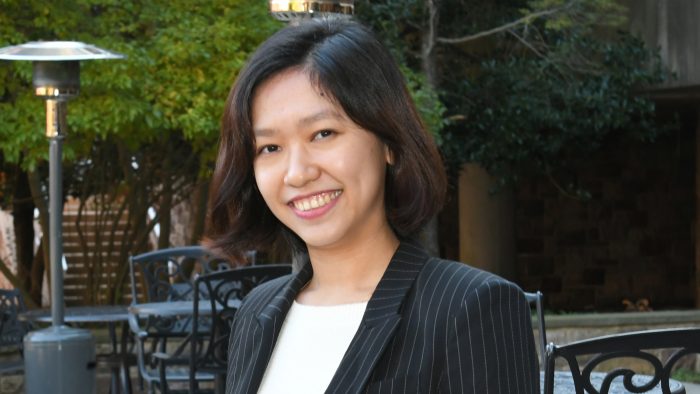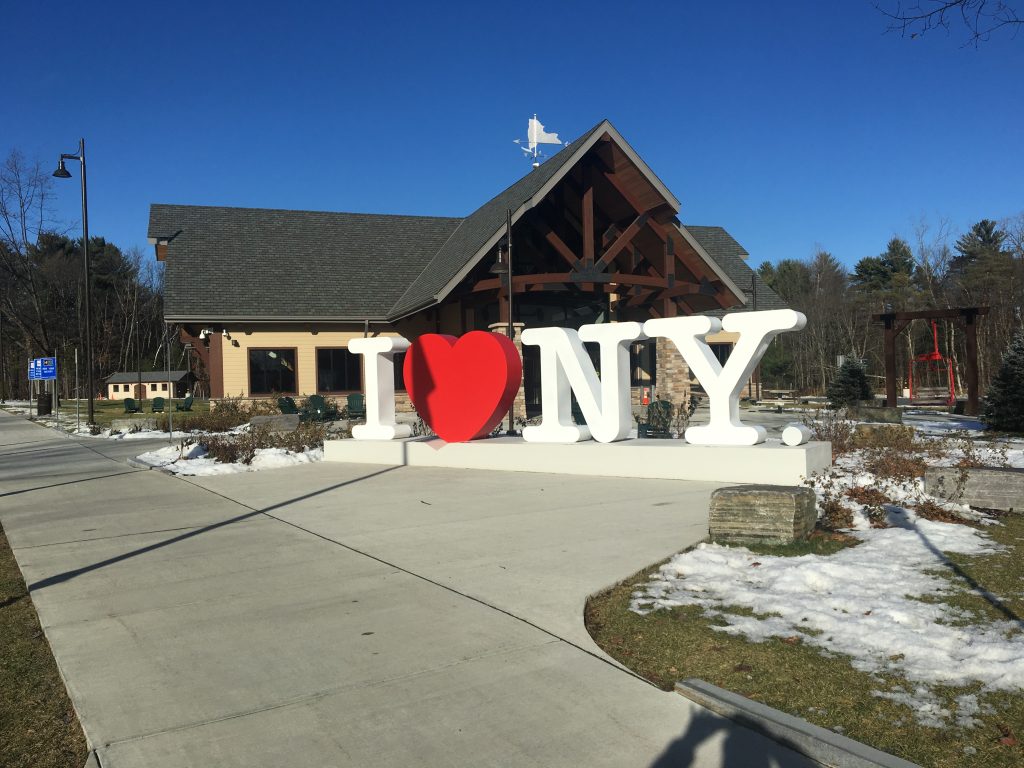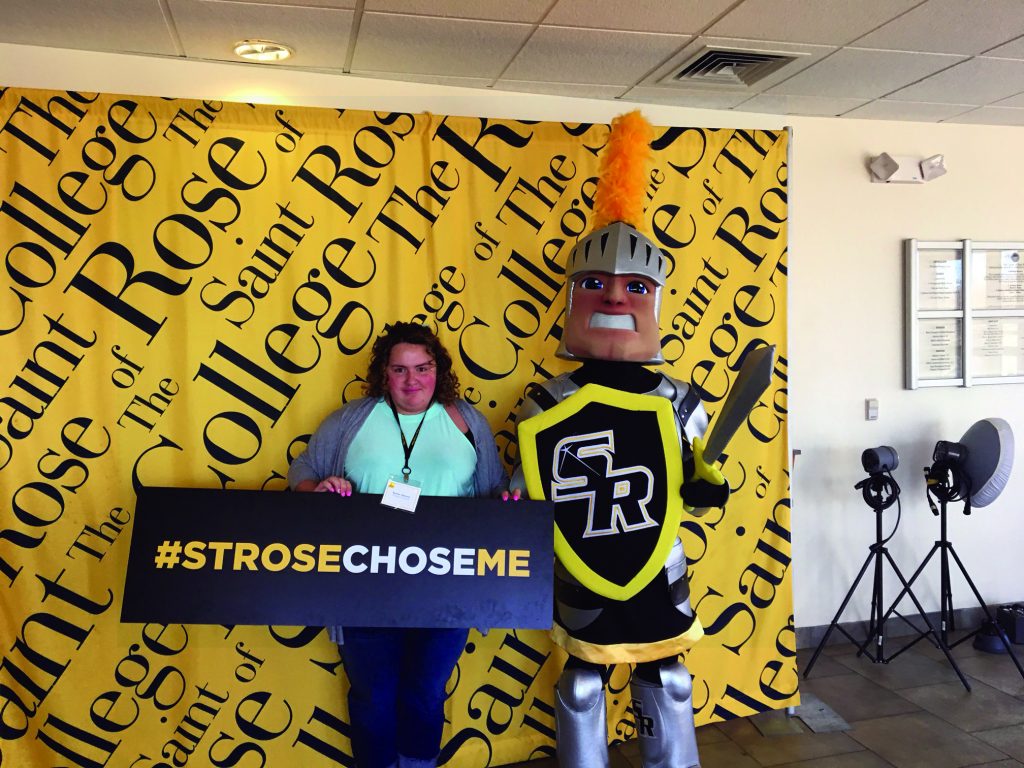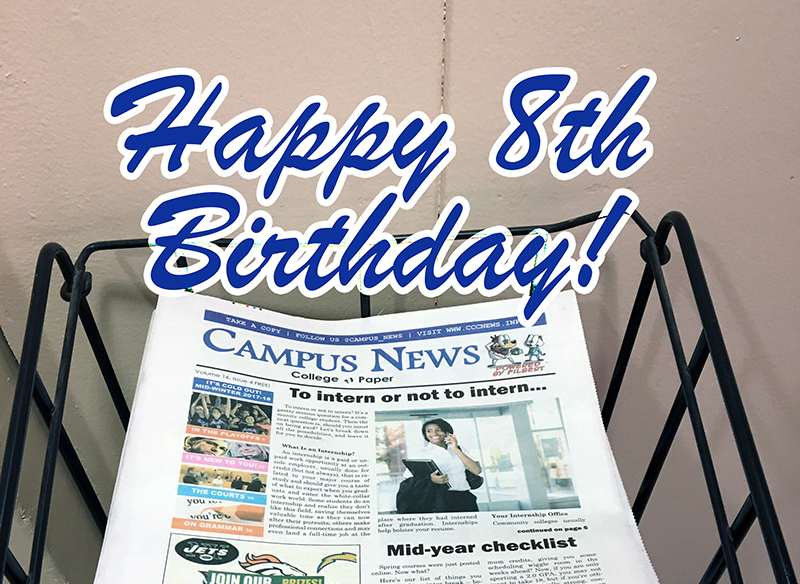By May Myat Moe
Special to Campus News
In 2007, I left my home country of Myanmar for New York to pursue a college degree — something my parents never had the opportunity to do. I started at Queensborough Community College and am now studying for my doctorate in chemistry at the CUNY Graduate Center. It is an honor to have the opportunity to be the first in my family to graduate from college and seek an advanced degree.
But getting here has been no simple task.
I’d like to share my story and advice in the hope of inspiring other first-generation community college students to obtain master’s and doctoral degrees in fields they are passionate about.
First, I’ll describe how I went from community college to getting my doctorate.
To start with, my first mentor and adviser, Dr. Paris Svoronos, guided me throughout my studies at Queensborough Community College, where I gained research experience and problem-solving skills. The most challenging part of my academic career was completing course work and conducting research at the same time. But with efficient time management, I was able not only to conduct research but also to present it at conferences and seminars. Even as a community college student, I undertook summer internships, such as participating in BioPREP, a federally funded research program at Stony Brook University.
By conducting research at Queensborough Community College, I learned the challenge of getting reproducible results and, more importantly, how to identify my mistakes and defend my findings at professional conferences, such as an American Chemical Society National Meeting. My research experiences promoted my transfer from a two-year community college to a bachelor’s program in chemistry at Queens College.
At Queens College, I continued to conduct research with the chemistry faculty and have learned different chemical, synthetic, and instrumental techniques. After obtaining my bachelor’s degree, I chose to pursue a master’s degree in biochemistry at Queens College. As part of my master’s training, I carried out a molecular biology project under the supervision of Dr. Timothy Short. Although many complications arose in my project, I was able to complete my master’s thesis.
Having overcome hurdles in my first three degrees, I chose a Ph.D. as the next step in my career path, and am now working with an amazing faculty mentor, Dr. Jianbo Liu, to obtain my doctorate.
Drawing on my experiences as a STEM student, I have put together five tips on what community college students can do to become doctoral students.
Know what kind of career you want to pursue.
One of the most crucial decisions students make is choosing a college major. Though it can be challenging to decide what to study, it is worthwhile to take the time to find what is right and best for you. In addition to your major, it is always good to minor in something that is complementary to your major or even something unrelated to your major that you are interested in, if time permits. As soon as you decide what to focus on, it will be easier to manage your time efficiently and progress to your capstone course. This way, you can begin developing and shaping both your academic and career paths before transferring to senior colleges.
Reach out to mentors in related fields.
To leverage your efforts and focus on your desired goal, you need to find a mentor who can guide and support you throughout your journey. From the perspective of STEM students, many community colleges allow undergraduate students to engage in research alongside professors. A great way to learn efficiently is by observing how professors operate in the lab or workplace. No matter how big or small a project is, participating in one allows you to explore your interests and gain new knowledge. Besides the ability to solve problems, it also imparts project management skills and writing etiquette. You’ll sharpen your skills and contribute knowledge to fields that interest you.
Attend seminars and conferences to form networks.
In addition to problem-solving skills, several other skills, such as communication and presentation, can be improved by attending academic conferences. Giving an oral presentation or presenting a research poster is a great way to refine your ability to communicate, a critical professional skill. Attending conferences also allows you to connect with people who have similar interests. Chatting and introducing yourself to other like-minded students and faculty is a great way to expand your network. You will never know if someone in your network will help you with your career, for example, by introducing you to a potential employer or a Ph.D. program.
Sample the real world through internships.
Applying for an internship while working on course work is admittedly a challenge, but it’s a great way to get a glimpse of real-world employment. You can coordinate with your academic adviser to find a suitable internship. Professional internships are about educating students and advancing their knowledge and skills. Many internships, especially at the undergraduate and graduate levels, are even paid, meaning you get a stipend to support you as you work and study. At an internship, you can shadow people and talk to them about their areas of expertise. You’ll see what the job is like, and you can also contribute to the work.
Find the Ph.D. program that’s right for you.
The last stage is to apply to a Ph.D. program in the subject that inspires you. Before you apply, you need to research the faculty members you are interested in working with and the topic you want to concentrate on. In other words, identify a potential mentor or adviser early and choose wisely. This is a person who will serve as your lab supervisor with whom you can communicate your issues. Once you’ve found the people you’d most like to work with and the schools to apply to, prepare the documents (curriculum vitae/resume, transcript, personal statement, recommendation letters, etc.) required for the Ph.D. program. A high GPA is not enough. It’s the extras that will make you stand out from other applicants. Once you receive your acceptance letter, you can look forward to the amazing journey of pursuing a doctorate.
May Myat Moe is a chemistry Ph.D. student at the CUNY Graduate Center and a graduate of Queensborough Community College and Queens College.








Facebook Comments